|
Prof. Erwei Song obtained his MD and Ph.D. at Zhongshan Medical School, and was trained as a surgeon at Sun Yat-sen Memorial Hospital, SYSU. He received post-doctoral training at Harvard Medical School in 2002 and became an instructor at the CBR Institute of Biomedical Research at Harvard in 2004. He is currently serving as Director of Health Science Center and President of Sun Yat-sen Memorial Hospital, SYSU. As a clinical scientist, he is keen to address scientific questions derived from clinical practice. He is the pioneer of breast-conserving surgery (BCS) in China, a new surgical concept in contrast to mastectomy, which preserves breast microenvironment tissues for the activation of anti-tumor immunity. As a surgeon, Erwei has compiled the first Chinese Experts Guidelines for Breast-conserving Surgeries of Early Breast Cancer. His early publication RNA interference targeting Fas protects mice from fulminant hepatitis ? in Nature Medicine was the first to report that siRNA could be used therapeutically in whole animal disease models. This finding was selected as one of the Top Ten breakthroughs of the year 2003? by Science , and has paved the foundation for clinical RNAi therapeutics. In 2022, Trends in Immunology published a feature review of his proposal of effector immune cell deployment (EICD)?, a revolutionary concept that depicts the most comprehensive approach to reflect cold and hot tumor immunotyping, which includes the priming, circulation, activity, trafficking, and fate of antitumor effector immune cells. In over 30 years of immunological research, he has uncovered important subtypes of cancer-associated immune cells, receptors, juxtracrine and pathways that has resulted in a paradigm shift in the field of cancer immunotherapy. He discovered various new subtypes of cancer-associated immune cells and mesenchymal cells, and elaborated on their mechanisms, providing new insights for cancer immunotherapy. Erwei recently proposed the Theory of Tumor Ecosystem ?, which emphasizes on the importance of viewing cancer as a viable ecosystem where host internal environment is vital for cancer cell survival and growth. On November, 2022, Erwei was awarded with The World Academy of Sciences (TWAS) in Medical Sciences for proposing and reinforcing the Theory of Tumor Ecosystem?. His latest book on Tumor Ecosystem: an ecological view of cancer growth and survival? was published by Springer Nature Publishing in June 2023. Plus d'infos... Tags: Cancer immunotherapy, Tumor microenvironment, Immunotherapy, Biotechnology, Cancer vaccines, Genomics Annonce publiée le 06-12-2024 |
|
| Institut Curie Centre de recherche - Paris - Amphitheatre Constant-Burg - 12 rue Lhomond, Paris 5e |



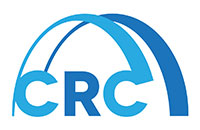






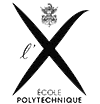





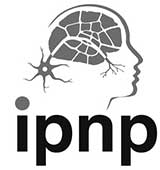

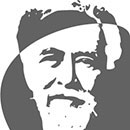

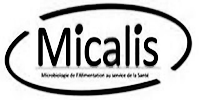






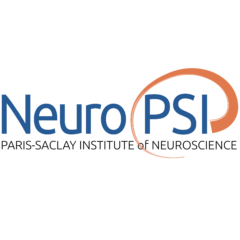
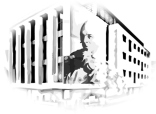

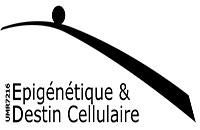



Pour afficher les séminaires d'un seul institut, appuyer d'abord sur 'None' puis sur l'institut de votre choix.
-
-
Plus d'infos...
Annonce publiée le 28-11-2024


Inst. Bio. Paris Seine
7-9 quai Saint Bernard, 75005 Paris -
Invite par: Rogerio Amino
Plus d'infos...
Tags: Infectious diseases, Disease transmission, Disease vector, Epidemiology, Parasitology, Immunology, Insect
Annonce publiée le 21-12-2024


Institut Pasteur
Batiment Lwoff building, salle Retrovirus, -
Invite par: Rogerio Amino
Plus d'infos...
Tags: Infectious diseases, Disease transmission, Disease vector, Epidemiology, Parasitology, Immunology
Annonce publiée le 03-01-2025


Institut Pasteur
Batiment Lwoff building, salle Retrovirus, -
Two researchers recruited by Inserm in 2024 will present their research projects: Delphine Judith and Luca Simula.
Plus d'infos...
Tags: Munimuni, Simula, Inserm, Delphine, Simula Research Laboratory
Annonce publiée le 25-10-2024


Institut Cochin
Salle Rosalind Franklin -
Plus d'infos...
Tags: Start-up
Annonce publiée le 13-12-2024


Centre de Recherche des Cordeliers
amphitheatre Gustave Roussy, 15 rue de l'Ecole de Medecine - 75005 -
More information : METHYS Dx
Plus d'infos...
Tags: DX
Annonce publiée le 22-12-2024


Centre de Recherche des Cordeliers
Amphi Gustave Roussy -
Invite par l’equipe Wassmann, Lendert Gelens (Laboratory of Dynamics in Biological Systems, University of Leuven, Belgium) presentera un seminaire de l’Institut Jacques Monod sur le theme : Nuclei coordinate the cell cycle in space and time Resume : Proliferating cells replicate their DNA and components before dividing, but how subcellular localization impacts cell cycle timing remains unclear. Using frog egg extracts encapsulated in droplets, we studied cell cycle oscillations with and without nuclei [1]. Time-lapse microscopy revealed that nuclei increase cell cycle duration, with increasingnuclear volume correlating with longer periods across different Xenopusspecies. This relationship persisted without DNA replication or transcription but was disrupted by inhibiting nuclear import or Wee1 kinase. A computational model incorporating nuclear-cytoplasmic compartmentalization and periodic nuclear envelope dynamics reproduced these findings, linking nuclear size to cycle timing. These results explain the lengthening of the cell cycle at the midblastula transition when cells become smaller, and the nuclear-cytoplasmic ratio increases. In early Xenopusembryos (~1.2 mm), mitotic waves coordinate the cell cycle over long distances, as diffusion alone is insufficient. Using X. laevisegg extracts and a Cdk1 FRET sensor, we observed a transition from phase to trigger wave dynamics in initially homogeneous cytosol [2]. Spatial heterogeneity and nuclei accelerated this transition, while metaphase-arrested extracts induced an immediate shift. Simulations revealed transient phase waves as trigger waves required time to entrain the system. Both wave types emerge as part of a unified process for coordinating the cell cycle across large distances. [1] Pineros, L. *; Frolov, N. *; Ruiz-Reynes, D.; Eynde, A. Van; Cavin-Meza, G.; Heald, R.; Gelens, L.; The nuclear-cytoplasmic ratio controls the cell cycle period in compartmentalized frog egg extract; BioRxiv, 2024. [2] Puls*, O.; Ruiz-Reynes*, D.; Tavella, F.; Jin, M.; Kim, Y.; Gelens*, L.; Yang*, Q.; Spatial heterogeneity accelerates phase-to-trigger wave transitions in frog egg extracts; Nature Communications,vol. 15,no. 10455,2024.
Plus d'infos...
Annonce publiée le 04-01-2025


Institut Jacques Monod
Institut Jacques Monod Salle Francois Jacob, 15 rue Helene Brion, Paris, France -
-
Invite par: Isabelle Sermet-Gaudelus
After earning her PhD in Pathophysiology at Sorbonne Universite (formerly Pierre and Marie Curie) in cotutelle de these with the University of North Carolina (UNC), under the mentorship of Dr. C.W. Davis, Camille Ehre joined the UNC Cystic Fibrosis (CF) Center under Dr. Richard Bouchermucin detection core and the imaging core as part of the Marsico Lung Institute. Her research work, funded by the NIH, the Cystic Fibrosis Foundation (CFF) and Vertex, explores the interactions and network dynamics of high-molecular-weight glycoproteins that regulate airway clearance.Seminar topic: Balancing Acts: The Dual Roles of Mucins in Cystic Fibrosis and Asthma
Plus d'infos...
Tags: Glycoproteins, Mucin, Cystic Fibrosis Foundation
Annonce publiée le 09-12-2024


Institut Necker Enfants Malades
Auditorium 1 -
Invite par: Heike Rebholz
Professor of Neurobiology of Homeostasis at the Universite Paris Cite, I am working in the team Central COntrol oF Feeding behaviour and Energy Expenditure (C2OFFEE) to leverage the power of modern molecular genetic tools in integrated approaches in order to dissect in vivo the physiological, cellular and molecular basis by which the dialogue between the brain and peripheral organs result in adaptive regulation of the various parameters of energy balance notably in its rewarding, motivational and sensory components, metabolic efficiency, allostatic response. Both homeostatic and reward circuits intimately collaborate in gating adaptive responses to changes in nutrients availability and are, directly and indirectly, controlled by extrinsic signals (sensory cues, including odors), cognitive factors (stress, environmental cues and stimuli), intrinsic factors including circulating energy-related signals (hormones, nutrient) and afferent nervous inputs from the periphery (gut-brain vagal axis).
Plus d'infos...
Tags: Sensory systems, Motor system, Thalamus, Reward system, Body metabolism, Energy homeostasis, Feeding
Annonce publiée le 03-01-2025


Institut de Psychiatrie et Neurosciences de Paris
salle Deborah Levy, 102-108 rue de la Sante 75014 -
Abstract will appear here.
Plus d'infos...
Annonce publiée le 10-09-2024


Neural Networking Night
pub Le Piano Vache - 8 Rue Laplace, 75005 Paris -
Invite par: Les Lundis de Saint-Antoine
Phenotypic alterations in vascular smooth muscle cells (VSMCs) play a crucial role in pathological vascular remodeling processes such as atherosclerosis and post-angioplasty restenosis. Additionally, these alterations are also implicated in vascular dysfunction in Alzheimer's disease (AD) and cerebral amyloid angiopathy (CAA). During the last decade, we characterized a novel splicing variant of Adenylyl Cyclase 8 named AC8E, in transdifferentiated VSMCs in atherosclerosis. AC8E promotes VSMC transdifferentiation by reducing cAMP production. AC8E acts as a dominant negative by forming heterodimers with other full-length ACs, impeding the traffic of functional units towards the plasma membrane and inhibiting cyclase activity through its N-terminus domain. In the context of AD and CAA, vascular deposits of amyloid peptides, primarily A1-40, lead to a disruption of cerebral vascular integrity, resulting in changes in vascular tone implicated in cognitive impairment. Vascular tone is regulated by VSMCs and depends on the balance between cAMP and calcium pathways. Using real-time imaging in primary aortic and cerebrovascular VSMC cultures, we investigated the effects of A1-40 on these signaling pathways. Our findings reveal that cerebral VSMCs, but not aortic VSMCs, exposed to A1-40 acquire a hypercontractile phenotype, highlighting the distinct properties of VSMCs depending on their arterial bed of origin and further emphasize the vascular component in the pathology of AD and CAA.
Plus d'infos...
Tags: Vascular diseases, Vascular smooth muscle, Angiopathy, Atherosclerosis, Stenosis, Cerebral amyloid angiopathy, T-cadherin
Annonce publiée le 03-01-2025


CRSA
CRSA, salle des conferences au RDC du batiment Kourilsky, 184 rue du Faubourg Saint-Antoine - 75012 -
TBA
Plus d'infos...
Tags: Monaco at the 2013 Mediterranean Games, Damien Desprat
Annonce publiée le 20-09-2024


Laboratoire Jean Perrin
Laboratoire Jean Perrin - Campus Jussieu - T 22-32- 4e et. - P407 -
Invite par: CIRB - College de France
Plus d'infos...
Tags: @cirbcdf.bsky.social
Annonce publiée le 21-10-2024


College de France
au College de France - Salle D2 11 place Marcelin Berthelot - 75005 Paris -
Macrophages are phagocytic immune cells providing tissue-adapted and -imprinted homeostatic functions. Among key macrophage populations, splenic metallophilic marginal zone macrophages are positioned to sense and control dissemination of bloodborne threats. However, they have escaped thorough characterization for technical reasons. Using a novel purification protocol, we clearly defined MMMs phenotypically and identified their unique gene expression profile positioned for CD8+ T cell activation and MHC class I cross-presentation. In vitro, we showed that purified MMMs equal conventional dendritic cells type 1 (cDC1s) in cross-priming antigens yet employing a distinct, vacuolar processing pathway. In vivo biphoton and ex vivo light-sheet imaging showed long-standing contacts with cognate T cells differentiating to effectors. Moreover, we showed that MMMs cross-prime protective CD8+ T cell antitumor responses both by capturing blood-borne tumor antigens and by internalizing tumor cells seeding the spleen. Critically, this requires Batf3 expression by MMMs but is independent of cDC1s capturing tumor material for cross-presentation or cross-dressed with MHC-I molecules presenting tumor antigens. Paris Post-docs seminar series.
Plus d'infos...
Tags: Immunology, Immune system, T cells, Lymphatic system, Phagocytes, Cross-presentation, Macrophage, Marginal zone, Dendritic cell, Tumor antigen, Sialoadhesin, Priming
Annonce publiée le 29-10-2024


Institut Cochin
Salle Rosalind Franklin -
The two GDRs AQV (Quantitative approaches to living systems) and IMABIO (Imaging in Biology) are organising a joint workshop on 16 January 2025 at the Institut Jacques Monod in Paris on new microscopies in cell biology. The aim is to bring together scientists from biology, physics, engineering and data science to discuss new imaging strategies for : measuring physical descriptors of cellular organisation and function; improving imaging resolution; making smart microscopes more effective at capturing processes of interest. Confirmed speakers : Juliette Azimzadeh, Institut Jacques Monod, Paris Victor Barolle, Institut Langevin, Paris Ricardo Henriques, Instituto Gulbenkian de Ciencia, Oeiras and University College London Kheya Sengupta, Interdisciplinary Centre for Nanoscience, Marseille Vincent Studer, Interdisciplinary Neuroscience Institute, Bordeaux Ilaria Testa, KTH Royal Institute of Technology, Stockholm Oral presentations and posters will also be selected from the abstracts submitted. Registration is free but compulsory and is now open here: https://newmic4cellbio2.sciencesconf.org/ The organisers Pierre Bon, Nicolas Borghi, Cecile Leduc, Loic Le Goff, Pierre-Henri Puech
Plus d'infos...
Tags: Institut Jacques Monod, Jacques Monod
Annonce publiée le 11-11-2024


Institut Jacques Monod
Institut Jacques Monod Amphitheatre Buffon, 15 rue Helene Brion, Paris, France -
Plus d'infos...
Tags: Irene Miguel-Aliaga, Physiologists, Irene, Geely Geometry, Aliaga
Annonce publiée le 06-12-2024


Institut Curie
Centre de recherche - Paris - Amphitheatre Helene Martel-Massignac (BDD) -
Invite par: Chiara Maiuri
Plus d'infos...
Tags: Cellular respiration, Mitochondrion, Institut Gustave Roussy, Villejuif, Cell nucleus, Mitochondrial genetics, Molecular biology
Annonce publiée le 22-12-2024


Centre de Recherche des Cordeliers
Amphi Gustave Roussy -
Plus d'infos...
Tags: Pixelation, Immunology
Annonce publiée le 06-12-2024


Institut Curie
Centre de recherche - Paris - Webinar -
Invitee par l’equipe Konstantinides, Zayna Chaker (Institute of Functional Genomics of Lyon (IGFL) Ens de Lyon, CNRS) va presenter un Seminaire de l’Institut Jacques Monod sur le theme : Spatio-Temporal coordination of neural stem cells in the adult brain: A functional and evolutionary perspective Resume : Research over the last three decades has demonstrated that new neurons can be generated in the adult brain, and integrate into pre-existing complex circuits. The process of adult neurogenesis is evolutionary conserved among vertebrates, including fishes, frogs, reptiles, birds, rodents and primates. It is sustained by a small population of undifferentiated cells, called neural stem cells (NSCs), which persist as embryonic vestiges in adult brains. These cells reside in tightly controlled micro-environments called niches. The addition of young cells constitutes an important layer of adult brain plasticity, further enhancing its ability to adapt to diverse life experiences.However, the physiological relevance of adult-born neurons as well as the regenerative power of NSCs after injury are still highly debated to date, especially in mammals. Besides constitutive neurogenesis, we recently showed that regionally-defined subpopulations of NSCs in the adult ventricular niche produce transient waves of functionally-relevant interneurons in response to pregnancy and motherhood. This process finely tunes the mother's olfactory sensitivity to own versus alien pup odor (Chaker et al. 2023). In my lab, we are now investigating the cellular and molecular mechanisms allowing regionally-distinct pools of NSCs to coordinate their behavior in space (across all niches) and time (from embryo to different phases in adulthood), under specific physiological and pathological conditions.
Plus d'infos...
Annonce publiée le 04-01-2025


Institut Jacques Monod
Insitut Jacques Monod -
Invite par: Fabiola Terzi
Philippos Mourikis is a Research Director (DR1) at CNRS, leading a group within the team of Prof. F. Relaix since 2019. Recently appointed as a Team Leader at the Institut Necker-Enfants Malades (INEM), Dr. Mourikis will transfer his group to INEM in January 2025.With a long-standing interest in Notch signalling and the regulation of stem cell quiescence, Philippos Mourikis uses mouse skeletal muscle as a model system. His research integrates high-throughput technologies and mouse genetics to uncover novel regulators of muscle stem cell establishment and maintenance.Mourikis earned his PhD (20002005) at Harvard Medical School under the mentorship of Prof. Artavanis-Tsakonas, who famously cloned the Notch locus. During his doctoral studies, he explored ageing and Notch signalling in Drosophila melanogaster. His introduction into mouse genetics and muscle research began during his postdoctoral fellowship in the lab of Prof. Tajbakhsh at the Pasteur Institute, Paris (2006-2012). This was followed by a second postdoctoral position in Prof. Relaix's team at the Institute of Myology, also in Paris, where PM secured a CR1 CNRS position in 2014.PM EMBO Muscle Meeting, Chateau de Montvillargene, France (2022) 1st Symposium on "Muscle Stem Cells in Growth and Disease," Osaka, Japan (2023) Frontiers in Myogenesis Conference, Sao Paulo, Brazil (2023) The Notch Meeting XI, Athens, Greece (2019) The Notch Meeting XII, Athens, Greece (2023) The Notch Meeting XIII, Athens, Greece (2025, upcoming) Seminar topic: Notch-driven autocrine signalling networks maintain quiescence in muscle stem cells
Plus d'infos...
Tags: Signal transduction, Cell biology, Developmental biology, Biotechnology, Autocrine signaling, Notch signaling pathway, Cell signaling, Stem cell
Annonce publiée le 18-12-2024


Institut Necker Enfants Malades
Auditorium 3 -
Invite par: 2024-2025 EEB external seminar
We study the time to the most recent common ancestor of a sample of finite size in a wide class of genealogical models for populations with variable size. This is made possible by recently developed results on inhomogeneous phase-type random variables, allowing us to obtain the density function and the moments(expectation and variance) of the TMRCA of time-dependent coalescent processes in terms of matrix formulas. A careful study of this mathematical theory with applications to classical statistics of population genetics, such as the TMRCA or the site frequency spectrum, will be provided. This may be useful to determine if the population under study suffered phenomena such as exponential growth, recurrent bottlenecks, skewed offspring or selection....
Plus d'infos...
Tags: Evolutionary biology, Population genetics, Phylogenetics, Genetic genealogy, Human evolution, Most recent common ancestor, Population bottleneck, Viral phylodynamics
Annonce publiée le 04-01-2025


IBENS
salle Favard, IBENS 46 rue d'Ulm 75005 Paris -
Plus d'infos...
Annonce publiée le 02-12-2024
Academie des Sciences
23 quai de Conti - 75006 Paris -
TBA
Plus d'infos...
Tags: Draft:Rincn Bomba massacre, Rem
Annonce publiée le 19-12-2024


Laboratoire Jean Perrin
Laboratoire Jean Perrin - Campus Jussieu - T 22-32- 4e et. - P407 -
Invite par l’Institut Jacques Monod, Lucas Alves Tavares (Center for Virology Research and Department of Cell and Molecular Biology, University of Sao Paulo (USP) & Institut Curie, Paris) va presenter un Paris Postdoc Seminar sur le theme : Unverealing the role of AP-1?2 in the Endosome Maturation and Extracellular Vesicles Release Resume : The adaptor protein (AP) complexes are heterotetrameric complexes that coordinate protein trafficking in the endocytic and secretory pathways. AP-1, a complex of four distinct subunits (?, ?1, ?1, and ?1), is thought to mediate protein trafficking between the trans-Golgi network (TGN) and endosomes and Lysosomes Related Organelles (LROs) though clathrin-coated vesicles (CCV). The human genome encodes two isoforms of the ?-adaptin (?1 and ?2) subunit that form two variants of AP-1 (AP-1?1 and AP-1?2). Previous studies demonstrated that ?2 may form an AP-1 complex variant, but the knowledge is limited regarding the cellular roles played by this alternative AP-1 complex. We previously reported that ?2 is part of a functional AP-1 complex variant hijacked by HIV-1 Nef for targeting CD4 and MHC-I for lysosomal degradation. Moreover, we recently demonstrated that the retrograde transport of CI-MPR and ATP7B requires AP-1?2. During my internship at Graca Raposo laboratory (Institut Curie), we are investigating the participation of AP-1?2 in the maturation of early endosomes to late endosomes and also for the Extracellular Vesicles (EVs) secretion by using immunofluorescence, nanoparticle tracking analysis, western blot, immuno-electron microscopy analysis and conventional transmission electron microscopy analysis. Therefore, this study has the potential to contribute to the understanding of fundamental processes in the regulation of protein and membrane trafficking involved in the endosome maturation and EVs shedding.
Plus d'infos...
Annonce publiée le 04-01-2025


Institut Jacques Monod
Institut Jacques Monod Salle Francois Jacob, 15 rue Helene Brion, Paris, France -
Jeremy Salle (equipe Minc) va defendre son Habilitation a Diriger les Recherches : « Geometrie des clivages embryonnaires : Mecanismes et Implications » La soutenance se tiendra en francais le mardi 21 janvier 2025 a 14h00, en salle Francois Jacob (IJM), en presence du jury compose de : Jenifer Croce (LBDV – Villefranche-sur-Mer) Remi Dumollard (LBDV – Villefranche-sur-Mer) Patrick Lemaire (CRBM – Montpellier) Lionel Pintard (IJM – Paris) Marie-Helene Verlhac (College de France – Paris) Nicolas Minc (IJM – Paris)
Plus d'infos...
Annonce publiée le 04-01-2025


Institut Jacques Monod
Institut Jacques Monod Salle Francois Jacob, 15 rue Helene Brion, Paris, France -
Plus d'infos...
Tags: Calcium signaling, Cardiomyocyte proliferation, Electrophysiology
Annonce publiée le 18-12-2024


Institut Curie
Centre de recherche - Paris - Amphitheatre Marie Curie -
Summary: Type 1 diabetes (T1D) is classically viewed as an autoimmune disease. While this certainly still holds true, recent work by us and others have highlighted a universal state of “benign” autoimmunity present in all individuals. The key question is therefore to understand the mechanisms by which this benign autoimmunity progresses towards an aggressive state and leads to T1D. Two non-mutually exclusive mechanisms are at play: defective immune regulation and an increased vulnerability of beta cells to the autoimmune attack. These mechanisms also provide relevant therapeutic targets that we are exploring in preclinical mouse and in-vitro human models and in patients. Overall, T1D should now be viewed as both an autoimmune and a beta-cell disease, and should be treated accordingly. Biography: R. Mallone received his MD PhD degree from the University of Turin, Italy. After a Postdoc with Jerry Nepom at the Benaroya Institute in Seattle, he moved to Paris where he is currently Professor of Immunology at Université Paris Cité, Diabetologist at the Cochin Hospital and leads a research team at the INSERM Cochin Institute. He is also director of a satellite research lab at the Indiana Biosciences Research Institute in Indianapolis. His research spans from preclinical studies with human samples and mouse models to clinical trials. It focuses on autoimmune T cells and their dialogue with pancreatic beta cells to understanding type 1 diabetes mechanisms and develop novel biomarkers and therapeutics.
Plus d'infos...
Tags: Immunology, Autoimmune diseases, T cells, Type 1 diabetes, Autoimmunity, Autoimmune disease, Beta cell, Biobreeding rat, Breakthrough T1D
Annonce publiée le 22-12-2024


Centre de Recherche des Cordeliers
Amphi Gustave Roussy -
Bart N. Lambrecht, VIB Center for Inflammation Research, Ghent, Belgium IRF4 and IRF8 are key transcription factors controlling monocyte and DC development and function. In this talk, I will give 2 examples on how these TFs can control key aspects of macrophage homeostasis and disease. Mice deficient in IRF8 fail to develop cDC1 and monocytes and have a myeloproliferative syndrome. By disentangling the effects of IRF8 deficiency, we report that the well-known accumulation of neutrophils in Irf8-/- mice requires two independent hits; IRF8 must be simultaneously absent from myeloid progenitors as well as from mature macrophages. Whereas loss of IRF8 promotes the generation of neutrophils from progenitors, macrophage-specific loss of IRF8 and its downstream target FLT3 impaired their trans surveillance ability to consume FLT3L, the growth factor driving neutrophil accumulation. As neutrophils and macrophages represent alternative fates downstream of granulocyte-macrophage progenitors, we propose that cell fate decisions are accompanied by the institution of counting? mechanisms, in the form of growth factor regulation by cells of opposing fates to maintain stable cell ratios across the organism. Tissue resident alveolar macrophages (trAMs) are generally considered as resilient immunoregulatory cells that safeguard the alveolar space from overzealous inflammation that would compromise gas exchange. Using mice in which trAMs can be specifically deleted and replaced, we show that trAMs can also act as pro-inflammatory cells that orchestrate type-2 immunity in the lungs. After house dust mite allergen inhalation, the alarmin IL-33 primes ILC2s to produce IL-13 which reprograms trAMs by upregulation of IRF4. While trAM identity is rapidly lost due to chromatin remodeling and downregulation of PPARg dependent homeostatic genes, IRF4-dependent binding and transcription at loci coding for chemokines and cell-cell fusion machinery leads to recruitment of granulocytes, ILC2s and Tregs to the alveolar space, and to formation of multinucleated giant cells. Therefore, trAMs are highly versatile cells that tightly control recruitment of inflammatory cells to the alveolar space and can be reprogrammed to drive lung inflammation via IRF4.
Plus d'infos...
Tags: Immune system, Cell biology, Phagocytes, Transcription factors, Connective tissue cells, Macrophage, IRF8, Phagocyte, Alveolar macrophage, IRF4, Neutrophil, Inflammation
Annonce publiée le 12-12-2024


Institut Curie
Hopital site de Paris - Amphitheatre Constant-Burg - 12 rue Lhomond, Paris 5e -
Invite par: Vincent Goffin - GH and PRL pathophysiology
Wilbert Zwart completed his PhD at the Netherlands Cancer institute (NKI; Amsterdam) in 2009, and received is post-doctoral training at the CRUK-CI in Cambridge (UK), in the lab of prof. Jason Carroll. Since 2011, Wilbert runs his independent research lab at the NKI studying hormone-dependent cancers, focusing on hormone receptor biology, epigenetics and gene regulation. His projects have a full circleFunctional Genomics in Oncology Hormones, Epigenetics and Cancer: From Clinical Trials to Molecular Mechanisms and Back Again
Plus d'infos...
Tags: Cancer, Oncology
Annonce publiée le 29-11-2024


Institut Necker Enfants Malades
Auditorium 3 -
TBA
Plus d'infos...
Tags: Hautefeuille, Mathieu, Draft:Rincn Bomba massacre, Marc Hautefeuille
Annonce publiée le 19-12-2024


Laboratoire Jean Perrin
Laboratoire Jean Perrin - Campus Jussieu - T 22-32- 4e et. - P407 -
Invite par: CIRB - College de France
Plus d'infos...
Tags: @cirbcdf.bsky.social
Annonce publiée le 21-10-2024


College de France
au College de France - Salle D2 11 place Marcelin Berthelot - 75005 Paris -
Plus d'infos...
Tags: Olfactory system, Olfactory receptors, Sensory receptors, Integral membrane proteins, Protein families, Richard Lounsbery Award
Annonce publiée le 18-12-2024


Institut Curie
Centre de recherche - Paris - Amphitheatre Marie Curie -
Three researchers recruited by CNRS or Inserm in 2024 will present their research projects: Clotilde Cadart, Caroline Eozenou, Suzanne Faure-Dupuy.
Plus d'infos...
Tags: French National Centre for Scientific Research, Inserm, Dupuy
Annonce publiée le 30-10-2024


Institut Cochin
Salle Rosalind Franklin -
Ana-Maria Lennon Duménil is invited by Fatah Ouaaz.
Plus d'infos...
Tags: Carnot label, Curie Institute, Curie
Annonce publiée le 05-06-2024


Institut Cochin
Salle Rosalind Franklin -
Invite par: Fabiola Terzi
Philippe Pierre is an international leader in dendritic cell biology and innate immunity research. During his PhD at the EMBL (Heidelberg, Germany), his research focused on the characterization of the microtubule-binding protein CLIP-170. After a post-doctoral research period at Yale University School of Medicine (USA), he focused on MHC II-restricted antigen presentation and immune response. In 2000, he created his laboratory at the Centre d 2015 Prize" for molecular immunology from the French Academy of Sciences. He was the director of the CIML until 2024 and is professor-adjunct of the University of Aveiro (IBiMED, Portugal) and the Shanghai Institute of Immunology (SII, PRC).Seminar topic: Functional consequences of endo-lysosomes mispositioning in phagocytes: A RUFY3/4 story!
Plus d'infos...
Tags: Immune system, Vesicles, Centre d'immunologie de Marseille-Luminy, Phagocyte, Lysosome, Immunology, Dendritic cell, Innate immune system
Annonce publiée le 29-11-2024


Institut Necker Enfants Malades
Auditorium 3 -
Plus d'infos...
Annonce publiée le 28-11-2024


Inst. Bio. Paris Seine
7-9 quai Saint Bernard, 75005 Paris -
Invite par: CIRB - College de France
Plus d'infos...
Tags: @cirbcdf.bsky.social
Annonce publiée le 11-12-2024


College de France
au College de France - Salle D2 acces restreint, merci de passer par l'accueil du CDF : 11 place Marcelin Berthelot - 75005 Paris -
TBA
Plus d'infos...
Tags: Draft:List of wars lost by israel, Mister RNB Espaa
Annonce publiée le 18-05-2024


Laboratoire Jean Perrin
Salle de seminaires 4eme etage - LJP - Tours 22-23 -
Invited by Florence Margottin-Goguet
Plus d'infos...
Tags: Lentiviruses, Antiviral protein, HIV, Virus, Zinc finger, Antiviral drug, Virology, Simian immunodeficiency virus
Annonce publiée le 28-11-2024


Institut Cochin
Salle Rosalind Franklin -
Invite par: Gilles Crambert
Summary: Solid tumors are heterogeneous environments, containing niches of varying hypoxia, acidosis, and nutrient deprivation. Evidence from us and others shows that such hostile conditions can endow cancer cells with highly aggressive traits, including increased growth, invasiveness, and rewired metabolism. Such niches can also support cancer stem cells and protect cancer cells against chemotherapeutic and immune-oncological therapies. Accordingly, we recently demonstrated that acid-adapted pancreatic cancer cells give rise to highly aggressive tumors with increased metastatic potential in vivo. Understanding these niches and their impact can uncover new targets for improving treatment of aggressive cancers. I will present our recent work in which we combine in vitro and in vivo cancer models, microfluidics, and spatial transcriptomics to study the mechanisms through which tumor acidosis may drive cancer aggressiveness.
Plus d'infos...
Tags: Oncology, Tumor, Tumor microenvironment, Cancer stem cell, Metastasis, Patient derived xenograft, Oncometabolism
Annonce publiée le 22-12-2024


Centre de Recherche des Cordeliers
Amphi Gustave Roussy -
Invite par: YAMAMOTO Kei
Plus d'infos...
Tags: 5th arrondissement of Paris, National Museum of Natural History, France, Triune brain
Annonce publiée le 21-12-2024


NeuroPSI
Salle de conference Albe-Fessard -
Levendredi 7 fevrier 2025, Sophie G. Martin (Department of Molecular and Cellular Biology, University of Geneva, Switzerland) presentera une Conference de l'Institut Jacques Monod sur le theme : Signaling and actin focus architecture for cell-cell fusion Resume : Sexual reproduction is ubiquitous amongst eukaryotes. This requires alternation of cell-cell (gamete) fusion and genome reduction through meiosis. My lab has been using the yeast sexual reproduction pathway to study how cells polarize to find a mate and mount a fusion reaction. In the fission yeast Schizosaccharomyces pombe, sexual reproduction occurs between P and M cells, which communicate through pheromone-GPCR-MAPK signaling, driving the formation of cell pairs. Transition from gametes to zygote involves local cell wall digestion at the point of gamete contact, while preserving cell integrity. We have shown that cell-cell fusion requires the actin fusion focus, an aster-like assembly of linear actin filaments assembled by the formin Fus1, which concentrates both signaling molecules and secretory vesicles carrying cell wall digestion enyzmes. I will present our recent work on the molecular mechanisms of formation of the actin fusion focus, which require both formation of a formin biomolecular condensate and cytoskeletal focusing through formin-myosin feedback. I will also describe our progress in understanding the roles of local MAPK and PAK signaling for cells to pierce their cell wall once and only once.
Plus d'infos...
Annonce publiée le 04-01-2025


Institut Jacques Monod
Institut Jacques Monod Amphitheatre Buffon, 15 rue Helene Brion, Paris, France -
Abstract will appear here.
Plus d'infos...
Tags: Boisbriand
Annonce publiée le 10-09-2024


Neural Networking Night
pub Le Piano Vache - 8 Rue Laplace, 75005 Paris -
Le mardi 11 fevrier, Richard Benton (Center for Integrative Genomics, University of Lausanne) presentera une Conference de l’Institut Jacques Monod sur le theme : Fatal chemosensation, and how insects fight back Resume : Insecticide resistance is a widespread challenge for the management of vectors transmitting pathogens and agricultural pests, requiring a better understanding of the genetic mechanisms underlying the evolution of resistance. Drosophila sechellia is a compelling model for such studies as it naturally evolved resistance to octanoic acid, an abundant chemical of its noni fruit host that is toxic for other insects, including close relatives D. simulans and D. melanogaster. We have used a multi-pronged strategy to identify genes contributing to octanoic acid resistance. We began by experimentally-evolving D. simulans strains with higher tolerance to octanoic acid and determined the resulting genetic architecture. To identify specific candidate genes, we integrated this analysis with a genome-wide association study of octanoic acid resistance in D. simulans and a genome-wide CRISPR selection screen upon octanoic acid exposure in D. melanogaster S2R+ cultured cells. We identified four candidates, with diverse predicted molecular and expression properties, and validated their relevance using genetic analyses in D. melanogaster. Two of these genes displayed an increased expression in the experimentally-evolved strains, paralleling their higher levels of expression in D. sechellia. Our results suggest an adaptive role of these genes in shaping toxin resistance both under laboratory conditions and during D. sechellia's evolutionary history.
Plus d'infos...
Annonce publiée le 04-01-2025


Institut Jacques Monod
Batiment Condorcet Amphitheatre Pierre Gilles de Gennes, 4 rue Elsa Morante, Paris, France -
Invite par: CIRB - College de France
Plus d'infos...
Tags: @cirbcdf.bsky.social
Annonce publiée le 11-12-2024


College de France
au College de France - Salle D2 acces restreint, merci de passer par l'accueil du CDF : 11 place Marcelin Berthelot - 75005 Paris -
Anti-PD-1 therapy targets intratumoral CD8+ T cells to promote clinical responses in cancer patients. Recent evidence has suggested that anti-PD-1 also act in the periphery. In particular, new T cell clonotypes emerge during anti-PD-1 therapy within the tumor microenvironment, suggesting de novo priming in the periphery. However, the underlying mechanism remains incompletely understood. In this presentation, I will show the importance of TDLN during anti-PD-1 therapy and discuss unexpected mechanisms for the peripheral activity of anti-PD-1 antibodies Paris Post-docs seminar series.
Plus d'infos...
Tags: Immune system, Immunology, Clusters of differentiation, Programmed cell death protein 1, Tumor microenvironment, T cell, Pd1, Antibody, Cancer immunotherapy, Dario Angelo Alberto Vignali
Annonce publiée le 29-11-2024


Institut Cochin
Salle Rosalind Franklin -
Plus d'infos...
Tags: Cancer
Annonce publiée le 22-12-2024


Centre de Recherche des Cordeliers
Amphi Gustave Roussy -
Invite par l’equipe Courtier, Peter Andolfatto (Professor, Dept. of Biological Sciences, Columbia University) presentera un seminaire de l’Institut Jacques Monod sur le theme : The evolution of toxin-resistant Na+,K+-ATPases: new insights from frogs and fireflies We study the process of adaptive evolution through the lens of repeated adaptation of many distantly species to a similar selection pressure (i.e. «parallel evolution»). Over the past decade, we have explored patterns of adaptation in the context of animals that have specialized in eating plants, or other animals, that contain toxic cardiotonic steroids (CTS). CTS are toxic to animals because they inhibit sodium-potassium ATPase, a key enzyme in animals needed in everything from maintaining cell homeostasis, muscle contraction to neuron activity. Here I review our most recent work combining comparative molecular evolution, molecular and biochemical assays andin vivoengineering of Drosophila to deduce the rules governing the adaptive evolution of CTS resistance in animals. Together, our results have interesting implications for how epistasis and pleiotropy both limit the rate of adaptive protein evolution and increase its predictability.
Plus d'infos...
Annonce publiée le 04-01-2025


Institut Jacques Monod
Institut Jacques Monod Salle Francois Jacob, 15 rue Helene Brion, Paris, France -
Save the date! The Single Cell Initiative, the Cell and Tissue Imaging Platform (PICT) and the Experimental Pathology (PATHEX) core facilities co-organise an afternoon dedicated to spatial omics at Institut Curie. Meet the core facilities and discover how your colleagues apply spatial omics technologies in their research! Agenda, registration link and more information to come soon.
Plus d'infos...
Tags: Genomics, Omics, OMICS Publishing Group
Annonce publiée le 06-12-2024


Institut Curie
Centre de recherche - Paris - Amphitheatre Helene Martel-Massignac (BDD) -
Invited by Pascal Maire.
Plus d'infos...
Tags: Maire, Municipal governments in Saint Pierre and Miquelon, When Do You Commit Suicide?
Annonce publiée le 04-12-2024


Institut Cochin
Salle Rosalind Franklin -
Plus d'infos...
Annonce publiée le 28-11-2024


Inst. Bio. Paris Seine
7-9 quai Saint Bernard, 75005 Paris -
Mitochondria are double membrane-bound organelles that perform biosynthetic and signaling roles to control the life and death of the cell. Mitochondria are paramount to the metabolism and survival of cardiomyocytes, which have the most densely packed inner mitochondrial membrane of all cells. Cardiomyocytes are exquisitely sensitive to perturbations of mitochondrial structure, which can lead trigger downstream maladaptive and compensatory responses. In my talk, I will share our latest, unpublished findings using mouse models we have developed that have revealed the importance of inner mitochondrial membrane integrity in restraining cardiac inflammation and the emerging effects that biological sex can have on these phenomena. Timothy Wai is invited by Molly Ingersoll and Catherine Postic.
Plus d'infos...
Tags: Membrane biology, Mitochondria, Cellular respiration, Mitochondrion, Inner mitochondrial membrane, Cell membrane, Cell biology, MFN2
Annonce publiée le 29-11-2024


Institut Cochin
Salle Rosalind Franklin -
Plus d'infos...
Tags: ICM, Piti-Salptrire Hospital
Annonce publiée le 13-11-2024


Neural Networking Night
pub Le Piano Vache - 8 Rue Laplace, 75005 Paris -
Plus d'infos...
Annonce publiée le 20-12-2024


Institut Curie
Centre de recherche - Paris - Amphitheatre Helene Martel-Massignac (BDD) -
Plus d'infos...
Tags: Epigenetics, Genetic mapping, Lamarckism, Edith Heard, Genevive Almouzni
Annonce publiée le 13-12-2024


Institut Curie
Centre de recherche - Paris - Amphitheatre Constant-Burg - 12 rue Lhomond, Paris 5e -
Proteins in cells are not homogeneously distributed, but often localized to specific compartments, which may or may not be enclosed by membranes.
Here I will first discuss the dynamic formation of membraneless compartments in the non-equilibrium environment of living cells and how this formation can be regulated, e.g. by kinases [1]. Then I will show how single-molecule FRET (smFRET) and tracking of biomolecules can be used to study conformational dynamics and time-resolved cellular localization in living cells [2]. Results with the transcription initiation factor TAF2 show that the same protein can be in different compartments and thereby have different functions [3]. For the heat shock protein Hsp90 we will determine how proteins may be recruited to different compartments and have different conformational dynamics.
Altogether, smFRET has the potential to change our view on compartment-specific protein dynamics and therefore signalling within living cells.
[1] C. Lan, J. Kim, S. Ulferts, F. Aprile-Garcia, A. Anandamurugan, R. Grosse, R. Sawarkar, A. Reinhardt and T. Hugel, Nat. Commun., 14:4831 2023 (https://doi.org/10.1038/s41467-023-40540-2)
[2] A. Anandamurugan, A. Eidloth, P. Wortmann, L. Schrangl, F. Aprile-Garcia, C. Lan, R. Sawarkar, G. J. Schütz, T. Hugel, bioRxiv 2023 (https://doi.org/10.1101/2023.09.15.557875)
[3] T. Bhuiyan, P. K. Mendoza Sanchez, N. Arecco, J. Kim, S. Nizamuddin, A. Prunotto, M. Tekman, M. L. Biniossek, S. Koidl, T. Hugel, S. J. Arnold, bioRxiv 2024, (https://doi.org/10.1101/2024.02.05.578926)
Plus d'infos...
Tags: Single-molecule FRET, Live single-cell imaging, DEP domain
Annonce publiée le 12-09-2024


Institut Curie
Centre de recherche - Paris - Amphitheatre Marie Curie -
Invited by Anne Hosmalin.
Plus d'infos...
Tags: Solan, Karolinska Institute
Annonce publiée le 25-10-2024


Institut Cochin
Salle Rosalind Franklin -
Invited by Anne Hosmalin.
Plus d'infos...
Tags: Karolinska Institute, Solna
Annonce publiée le 30-11-2024


Institut Cochin
Salle Rosalind Franklin -
TBA
Plus d'infos...
Tags: Morvan, Ghislain
Annonce publiée le 23-11-2024


Laboratoire Jean Perrin
Salle de seminaires 4eme etage - LJP - Tours 22-23 -
Invited by Molly Ingersoll.
Plus d'infos...
Tags: NewYorkPresbyterian Healthcare System, Ingersoll, Ontario, Ingersoll, Donna Farber, Columbia University Irving Medical Center
Annonce publiée le 19-12-2024


Institut Cochin
Salle Rosalind Franklin -
Invite par: CIRB - College de France
Plus d'infos...
Tags: @cirbcdf.bsky.social
Annonce publiée le 21-10-2024


College de France
au College de France - Salle D2 11 place Marcelin Berthelot - 75005 Paris -
Ce cours explorera la polyvalence des elements d ADN non geniques et des ARN non codants dans un large eventail de processus cellulaires, chez l humain et les organismes modeles, ainsi que leur implication dans la physiologie et les maladies. Il elargira les sujets autour des domaines de la genomique, de l epigenetique et de la transcriptomique, y compris les technologies et analyses a cellule unique, la regulation de l'epigenome et de l expression des genes, l organisation du genome et la clonalite cellulaire. Des experts reconnus a l international presenteront leurs dernieres decouvertes concernant l identification et la caracterisation fonctionnelle du genome non codant, et discuteront des nouveaux concepts en matiere de regulation et d evolution du genome, avec un fort accent sur les outils experimentaux et informatiques. Les sessions thematiques incluront l analyse computationnelle de l heterogeneite cellulaire, les methodes d evaluation de l heterogeneite et de la plasticite cellulaire, l epigenome dans la regulation de l expression des genes, les retroelements dans la plasticite cellulaire, le genome "sombre" dans l identite et la clonalite cellulaire, ainsi que l organisation spatiale. Ce cours offrira aux jeunes etudiants et chercheurs l opportunite d elargir leurs connaissances et de discuter de leurs travaux avec une communaute scientifique internationale dans un environnement chaleureux et stimulant a l Institut Curie a Paris. Keynote speakers Stein AERTS - BE Maria Elena TORRES PADILLA - DE Intervenants Tugce AKTAS - DE Maria BRBIC - CH Chunlong CHEN - FR Bart DEPLANCKE - CH Dominic GRÜN- DE Amit IDO - IL Jop KIND - NL Gioele LA MANNO - CH Ana POMBO - DE Alex RADZISHEUSKAYA - UK Alejo RODRIGUEZ FRATICELLI - ES Arjun RAJ - USA Arnau SEBRE-PEDROS - ES Sydney SHAFFER - USA Angela TADDEI - FR Barbara TREUTLEIN - CH Didier TRONO - CH
Plus d'infos...
Annonce publiée le 06-12-2024


Institut Curie
Centre de recherche - Paris - Amphitheatre Helene Martel-Massignac (BDD) -
Invited by Sophie Vaulont.
Plus d'infos...
Tags: Universities UK, Russell Group, University of Birmingham, Sophie
Annonce publiée le 20-12-2024


Institut Cochin
Salle Rosalind Franklin -
Plus d'infos...
Annonce publiée le 28-11-2024


Inst. Bio. Paris Seine
7-9 quai Saint Bernard, 75005 Paris -
Invite par: CIRB - College de France
Plus d'infos...
Tags: @cirbcdf.bsky.social
Annonce publiée le 11-12-2024


College de France
au College de France - Salle D2 acces restreint, merci de passer par l'accueil du CDF : 11 place Marcelin Berthelot - 75005 Paris -
Plus d'infos...
Tags: Koukouli, Pierrette Gaudreau, Jean Garrab
Annonce publiée le 13-11-2024


Neural Networking Night
pub Le Piano Vache - 8 Rue Laplace, 75005 Paris -
Plus d'infos...
Tags: Barbosa
Annonce publiée le 19-11-2024


Neural Networking Night
pub Le Piano Vache - 8 Rue Laplace, 75005 Paris -
Plus d'infos...
Tags: Delayed open access journals, Cell, Cell and molecular biology, Transfersome
Annonce publiée le 21-12-2024


Institut Curie
Centre de recherche - Paris - Amphitheatre Helene Martel-Massignac (BDD) -
Invite par: Théo Hirsch
Plus d'infos...
Tags: University of Leuven, In Belgium, Pierre-Joseph van Beneden
Annonce publiée le 22-12-2024


Centre de Recherche des Cordeliers
Amphi Gustave Roussy -
Plus d'infos...
Annonce publiée le 20-12-2024


Institut Curie
Centre de recherche - Paris - Amphitheatre Helene Martel-Massignac (BDD) -
Plus d'infos...
Tags: Ens, Provincial road N765
Annonce publiée le 13-11-2024


Neural Networking Night
pub Le Piano Vache - 8 Rue Laplace, 75005 Paris -
Plus d'infos...
Annonce publiée le 28-11-2024


Inst. Bio. Paris Seine
7-9 quai Saint Bernard, 75005 Paris -
Invite par: CIRB - College de France
Plus d'infos...
Tags: @cirbcdf.bsky.social
Annonce publiée le 11-12-2024


College de France
au College de France - Salle D2 acces restreint, merci de passer par l'accueil du CDF : 11 place Marcelin Berthelot - 75005 Paris -
Plus d'infos...
Annonce publiée le 20-12-2024


Institut Curie
Centre de recherche - Paris - Amphitheatre Helene Martel-Massignac (BDD) -
Invite par: Claire Deligne
Plus d'infos...
Tags: Midwood Books, Midwood, Brooklyn
Annonce publiée le 22-12-2024


Centre de Recherche des Cordeliers
Amphi Gustave Roussy